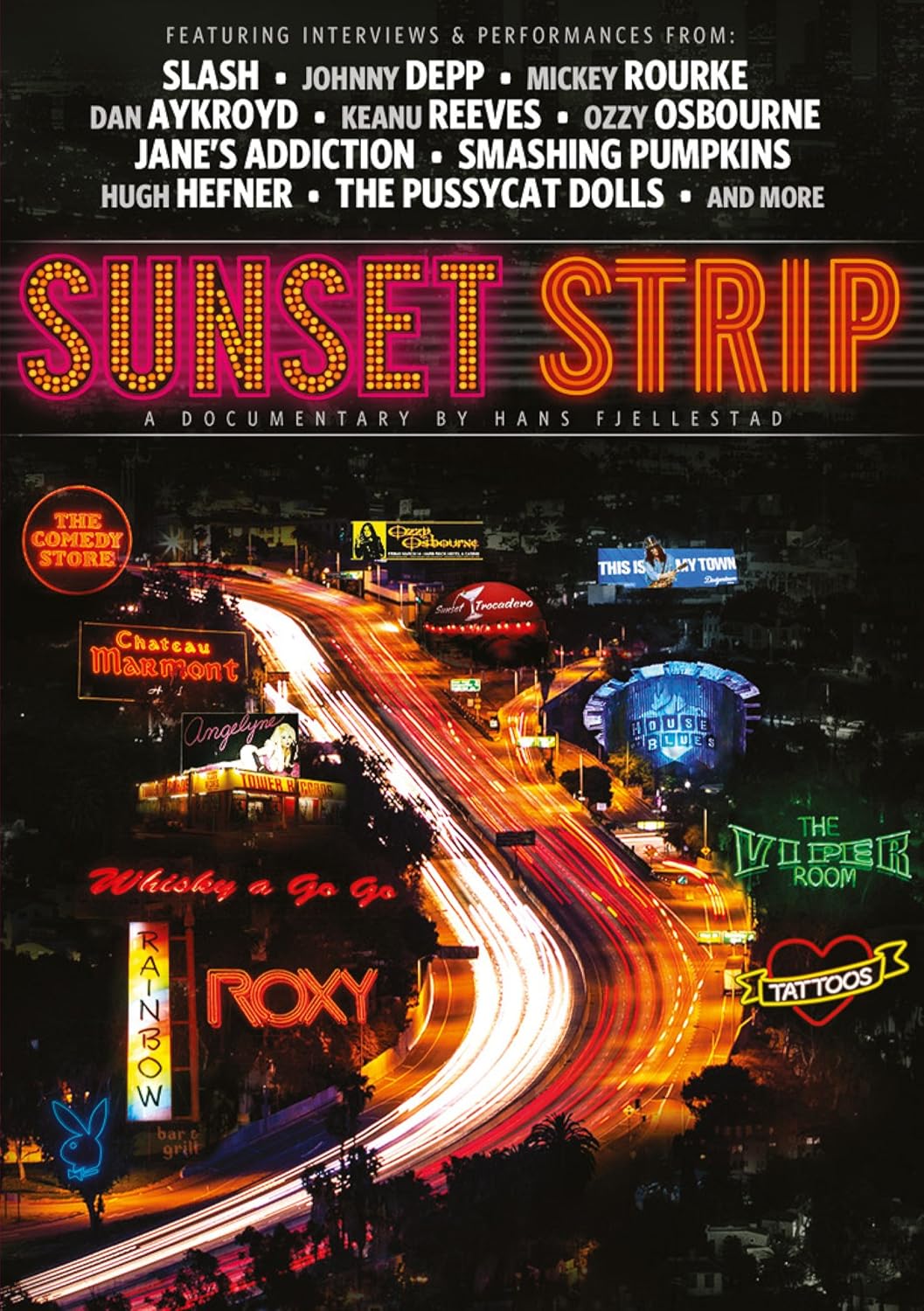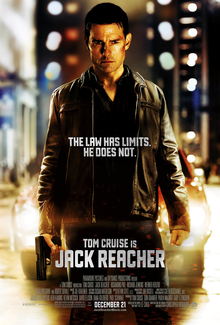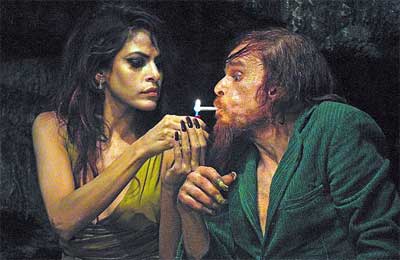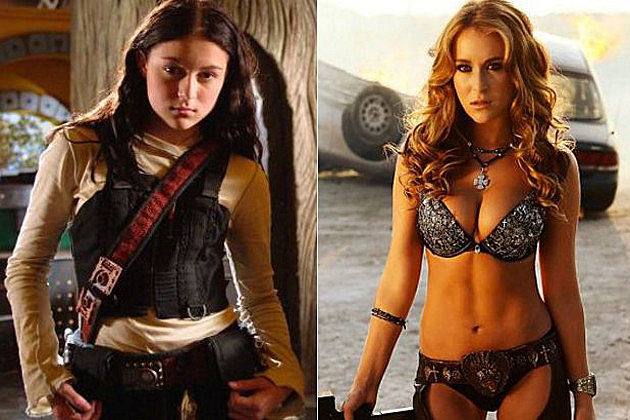I've been avoiding watching
Machete Kills for several months now. I was so dispirited by the Aztlan-
reconquista agitprop of the original
Machete in which all the gringos were racist caricatures and the slackly co-directed and edited action - usual multi-hyphenate director Robert Rodriguez's strong suit - that I never finished my review in Sept. 2010 (it scored a 6/10, rent the DVD). Add on his unappealing kiddie flicks
Shorts and
Spy Kids 4 and I wondered if he'd somehow lost the plot, making me fear for the coming-in-two-weeks
Sin City: A Dame To Kill For. Finally, I tossed the BD into the player and....
He appears to have lost the plot. Badly.
Machete has always been a thin joke from its origins as a fake trailer in
Grindhouse (his tag-team with Quentin Tarantino in which he surpassed handily), but amidst the rancid politics of the first film was some decent cheesy action and kicks, especially M.Rod as Shé (get it?). Piled high with cameos, it was OK, but nowhere as good as R.Rod's prime work like
Desperado and the first
Sin City.
After a funny fake trailer for the proposed 2nd sequel,
Machete Kills Again...In Space, the momentum grinds to almost an full stop as a clumsy and confused opening sequence serves to just kill off Jessica Alba's character (still no sign of acting life either) and put Machete (Danny Trejo, duh) in a noose at the hands of a racist Arizona sheriff. (Would you be surprised to learn that R.Rod hosted a big dollar fundraiser for Obama at his place recently? Didn't think so and, no, I'm not kidding.)
Saved by a call from President Carlos Estevez (recycling the gag from
Machete where Don Johnson was titled with "introducing"), Machete is dispatched to Mexico to grab a terrorist (Dimien Bichar, making his minor role in
The Heat look respectable) who controls a rocket aimed at Washington D.C. While on his quest, Machete gets a brothel of hotties led by Sofia Vergara and Alexa Vega (unrecognizably growed up from her
Spy Kids days, no really, look for yourself)...
Aye carumba!
...on his tail along with a hitman called
The Chameleon played by....well, that's half of the limited fun, so I won't spoil it.
Eventually Machete finds his way the the true villain, Mel Gibson (having a total blast despite getting lots of boring yammering), who has a scheme to live in space and something something bad guy blah-blah-woof-woof. At this point, who cares other than to watch R.Rod recycle other gags from his movies, especially the end of
Once Upon A Time In Mexico. The script by rookie typist Kyle Ward is a mess; why did R.Rod shoot this weak pastiche?
While the
Machete films were never meant to be taken seriously and the first one was saddled with enough unfun baggage to make a burro sigh,
Machete Kills is simply boring 99% of the time. I'm sure that someone on YouTube has chopped the isolated good bits into a fake trailer; go see if I'm right rather than slog through this mess. There's has a cheap patina to everything and I don't mean as a tribute to its grindhouse roots by rather a tacky, overly bright SyFy movie vibe. VFX are occasionally impressive, but frequently SyFy/
Spy Kids caliber. The story doesn't hold water and there's too much speechifying about nothing, not even agitprop like the first had. (When you're missing 2nd string Rage Against The Machine-style rhetoric, that's a bad sign.)
Robert Rodriguez used to be my favorite filmmaker. I've read his book
Rebel without a Crew: Or How a 23-Year-Old Filmmaker With $7,000 Became a Hollywood Player
about how he made
El Mariachi and created an accidental sensation. I've devoured his commentaries and his terrific
10-Minute Film School featurettes from which I've taken tips that I've used in my videos. He's DIY aesthetic and "creativity over throwing money at it" philosophy were terrific. But something has happened with his work. He'd slipped before with the kiddie flick
The Adventures of Shark Boy and Lava Girl (so mediocre I gave it to a fiend for her kid to watch), but just as Tiger Woods never being quite the same after his marriage blew up, R.Rod's dalliance with Rose McGowan after they'd worked on
Planet Terror seems to have changed him for the worse. His expanded TV series take on
From Dusk Til Dawn lost me after 4 or 5 episodes and
Machete Kills really makes me wonder if
Sin City co-director Frank Miller will be able to slap some sense into him. (Based on how bad
The Spirit - Miller's attempt to copy R.Rod's
Sin City style by himself - turned out, unlikely.)
As far as the Blu-ray goes, it looks and sounds fine with rich colors and fine detail and booming bass, but the crispness only amplifies the video-ish look. (They used Arri ALEXA cameras, the same as Roger Deakins used for
Skyfall, so it's not the gear.) The extras are pitiful with some deleted/extended scenes that I didn't bother watching and a 20-minute making of which mostly consists of everyone happy joy talking R.Rod and how great he is and how sweet Trejo is. If you understand what a happy cast means in conjunction with making
Cannonball Run 2, you know why this explains the movie. Otherwise there's nothing else: no film or cooking school; no commentary; no nothing but the fluff. So disappointing.
The only thing R.Rod killed with
Machete Kills is the franchise. Please don't make
Sin City: A Dame To Kill For suck, PLEASE!!!
Score: 2/10. Skip it.














